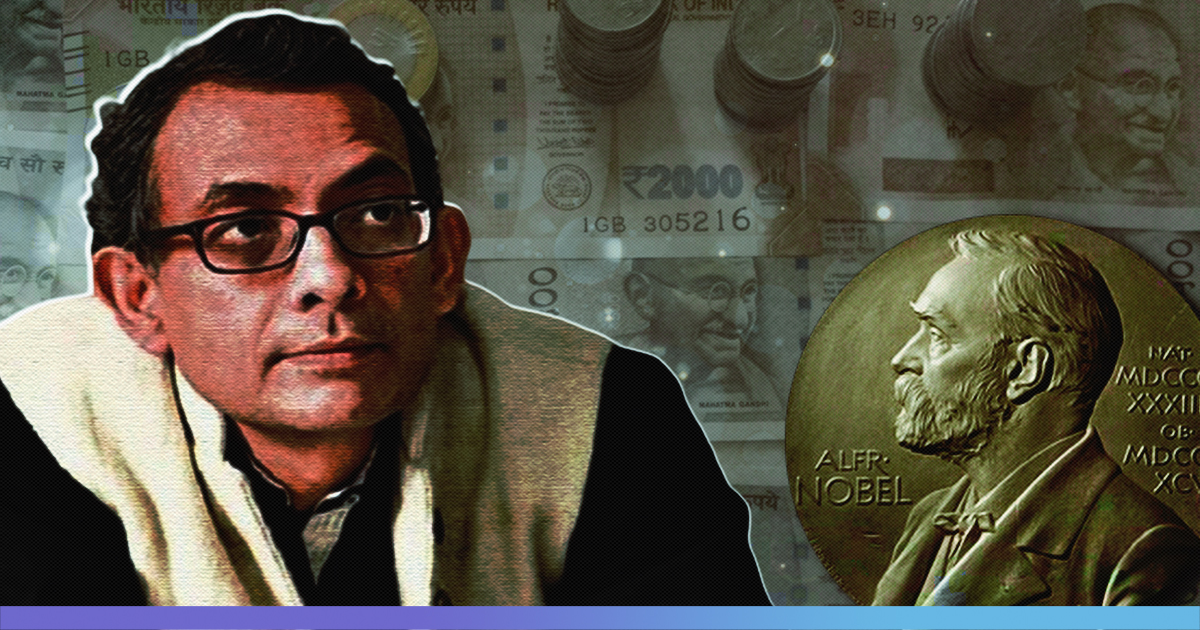
'Weird, Bewildering', Nobel Awardee Abhijit Banerjee Questions Logic Behind Demonetisation
15 Oct 2019 9:15 AM GMT
The newly-minted economics Nobel laureate Abhijit Banerjee has warned that the Indian economy is going into “a tailspin” and his solution for the government is to focus on increasing demand, rather than deficit or stability.
Banerjee, who has been a frequent critic of the current government’s moves, particularly BJP’s decision of demonetisation, termed it ‘weird and bewildering’. He has also criticised the implementation of the Goods and Services Tax.
BREAKING NEWS:
The 2019 Sveriges Riksbank Prize in Economic Sciences in Memory of Alfred Nobel has been awarded to Abhijit Banerjee, Esther Duflo and Michael Kremer “for their experimental approach to alleviating global poverty.”#NobelPrize pic.twitter.com/SuJfPoRe2N— The Nobel Prize (@NobelPrize) October 14, 2019
“The economy going into a tailspin is the time when you don’t worry so much about monetary stability and you worry a little more about demand, the demand is a huge problem right now in the economy,” he said at the Massachusetts Institute of Technology (MIT) in Cambridge on Monday after his award was announced.
The fall in consumption was a warning sign for India, Banerjee said.
“The economy is doing very badly in my view. One of the numbers that just came out is the National Sample Survey which comes out every one and a half years or so and it gives you the average consumption in urban and rural areas in India and the fact that we see in that is that between 2014-15 and 2017-18, that number has slightly gone down. That’s the first time such a thing has happened in many, many, many, many years. So that is a very glaring warning sign,” he said.
“The government has a large deficit, but right now, it is aiming to please everybody by pretending to hold to some budgetary targets and monetary targets,” he said.
Banerjee graduated from Presidency College, Kolkata and holds a Bachelor’s degree in economics. He pursued MA from Jawaharlal Nehru University and later earned a PhD from Harvard University in 1988.
Banerjee’s prescriptions include putting money into the hands of the Indian public, whether that is through raising the wages for India’s employment guarantee schemes and letting the rupee slide. He also advocates clearer regulation independent of government control.
Banerjee criticised Prime Minister Narendra Modi’s government over the use of data. “There is an enormous fight going on in India about which data is right. and the government has a particular view of all data that is inconvenient to it is wrong,” he said.
The 58-year-old economist praised some of the government initiatives, saying that the National Rural Employment Guarantee Scheme has been a solid success. “The evidence is that majority of income gains from NREGA don’t come from NREGA itself but from the fact that it raises wages because people don’t have to work on shift jobs at low wages and that has been a very big part of poverty,” the MIT professor said.
He also appreciated the idea behind the PM-Kisan scheme, saying that the idea to drop support prices towards income transfers was “sensible”, but the amount is not huge.
Banerjee was also one of the advisers to the Congress Party in this year’s elections for the Nyuntam Aay Yojana (NYAY) programme that aimed at giving a minimum guaranteed income to 50 million families in India.
At present, Banerjee is the Ford Foundation International Professor of Economics at MIT and his wife Esther Duflo is the Poverty Alleviation and Development Economics Professor there. The duo shared the prize with Harvard professor Michael Kremer for “their experimental approach to alleviating global poverty,” according to the Royal Swedish Academy of Sciences.
Also Read: Majoritarianism & Authoritarianism Taking India Down A “Dark & Uncertain Path”: Raghuram Rajan
 All section
All section













